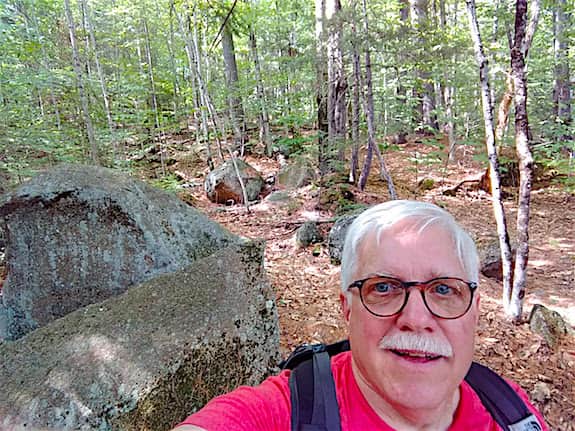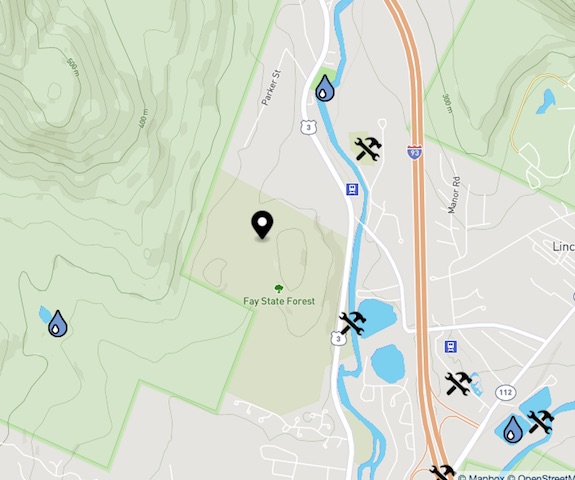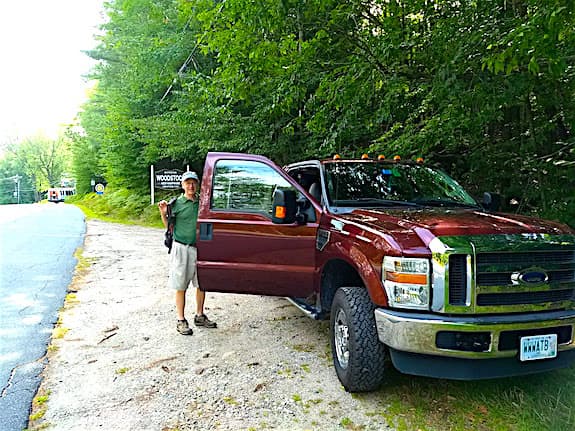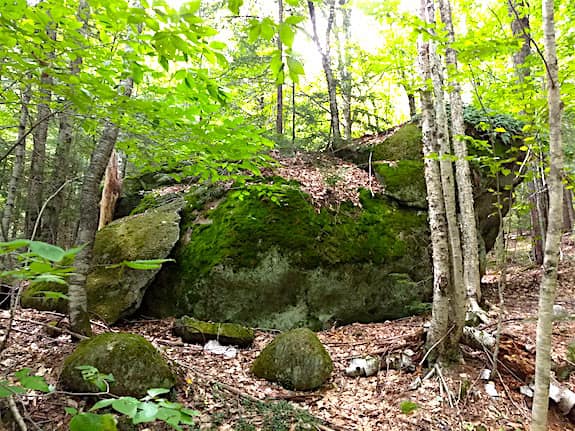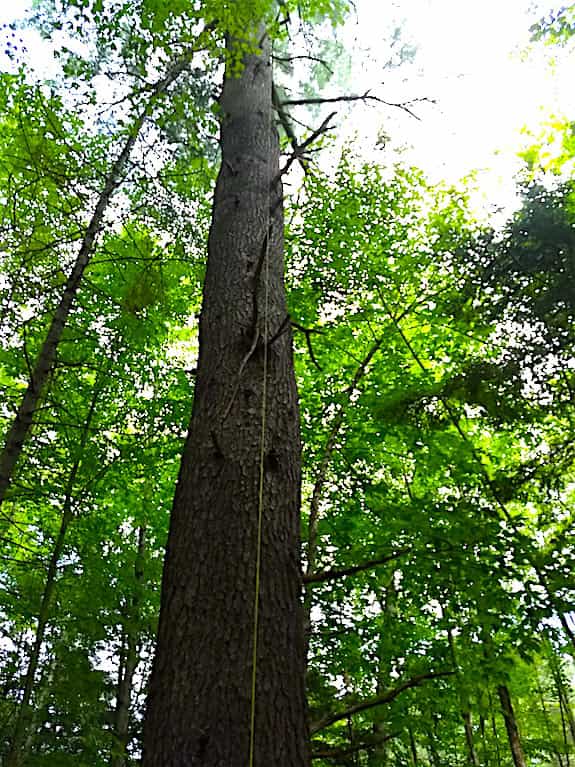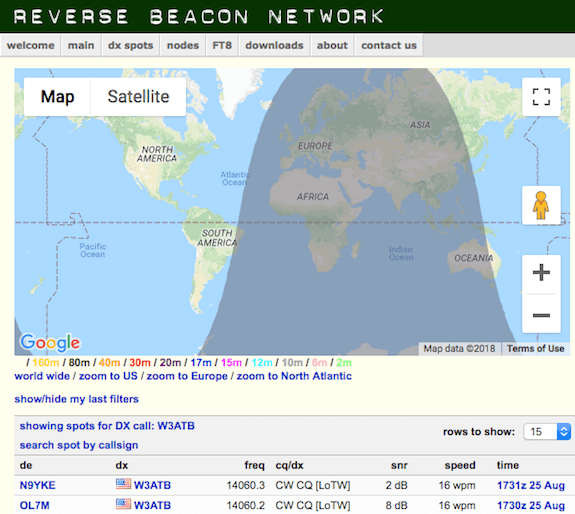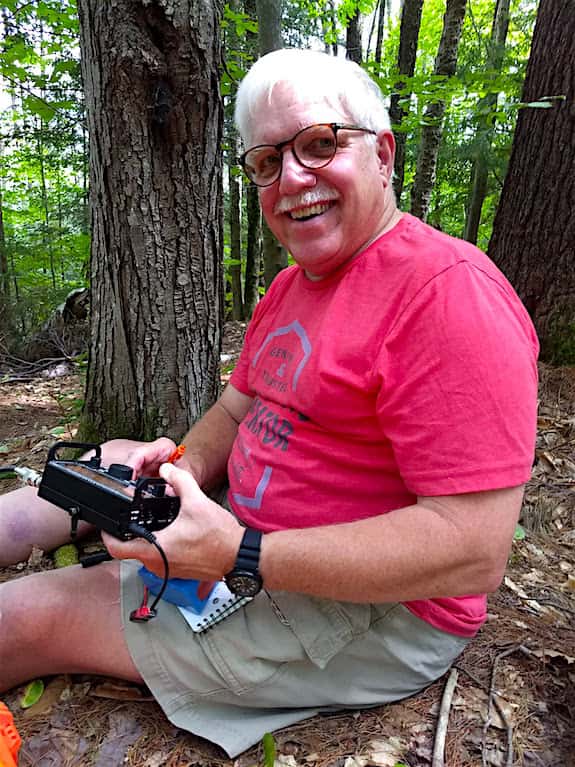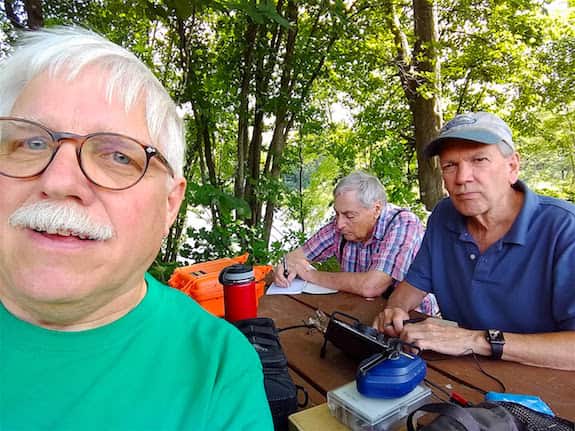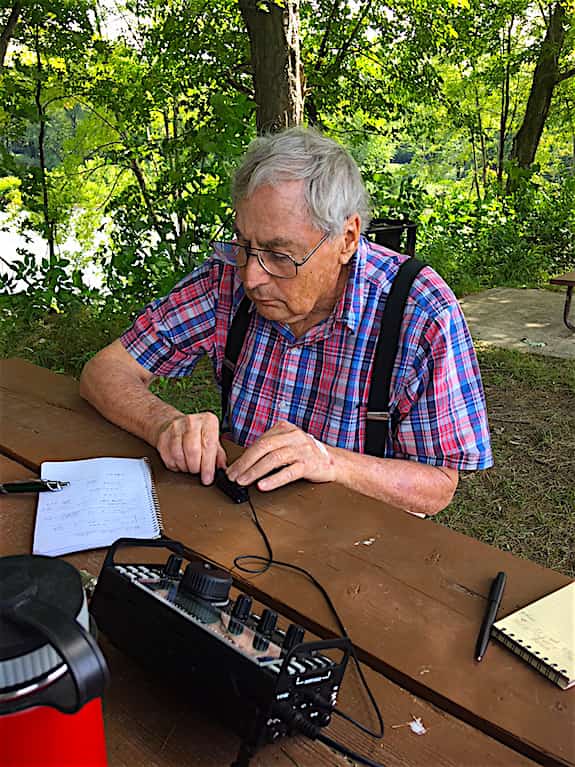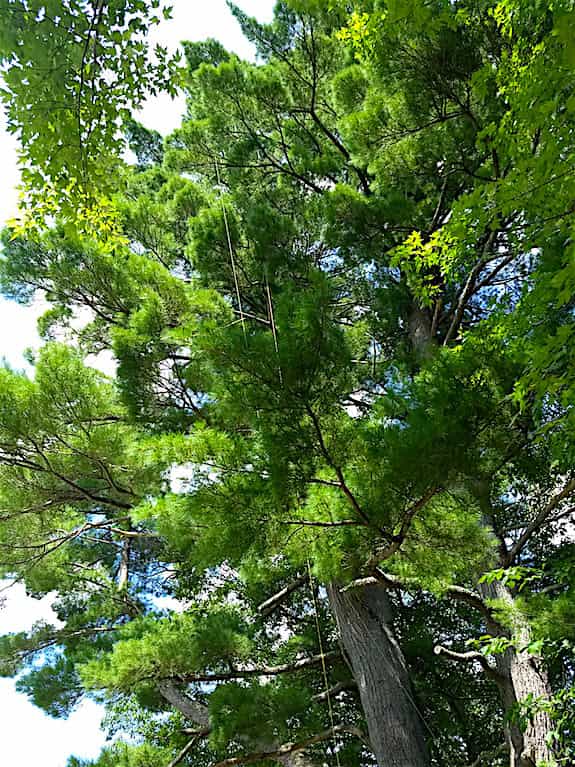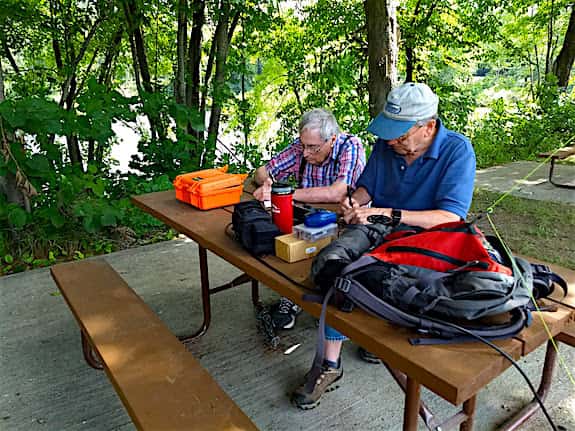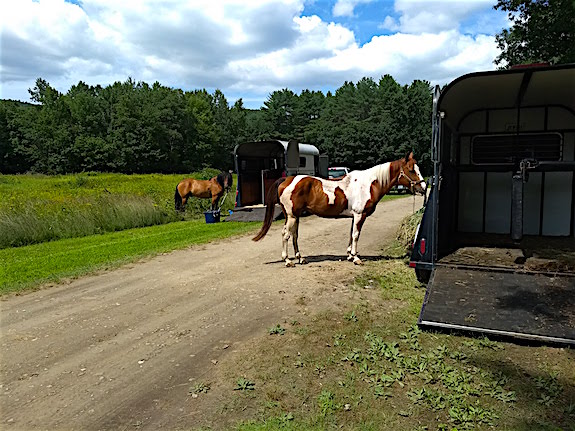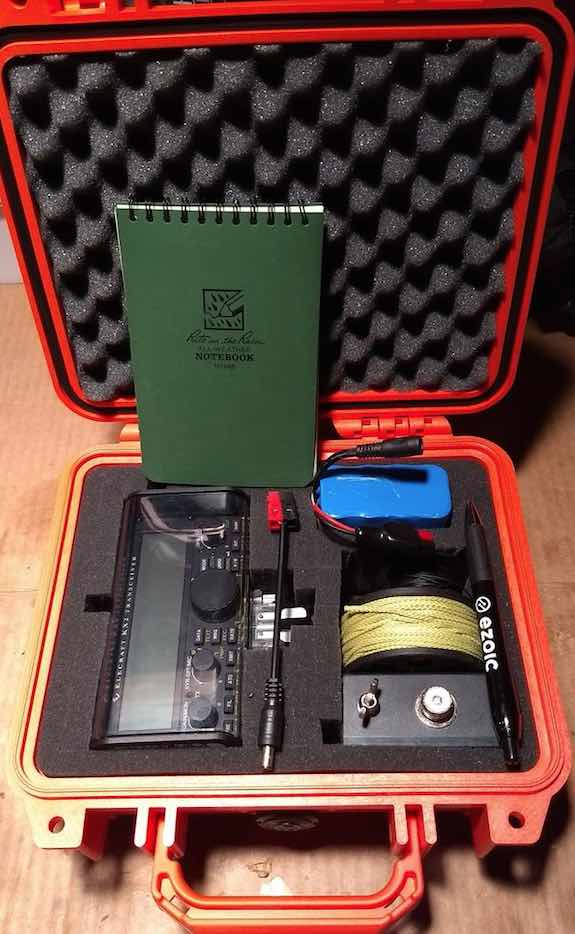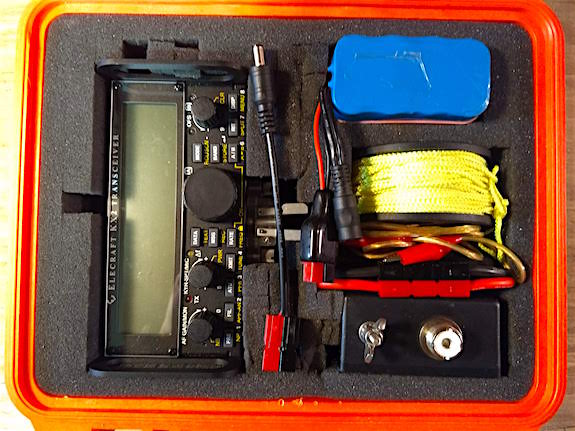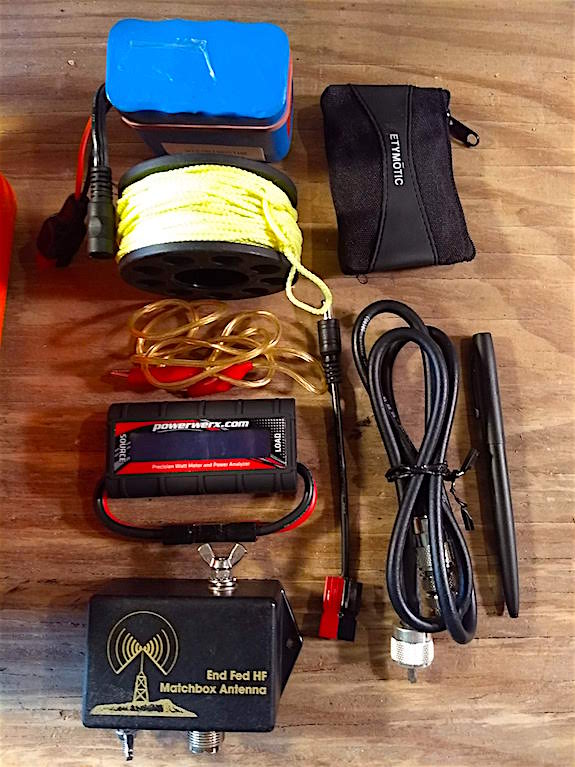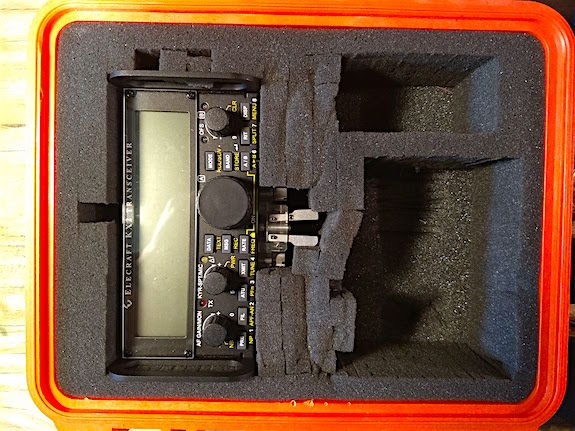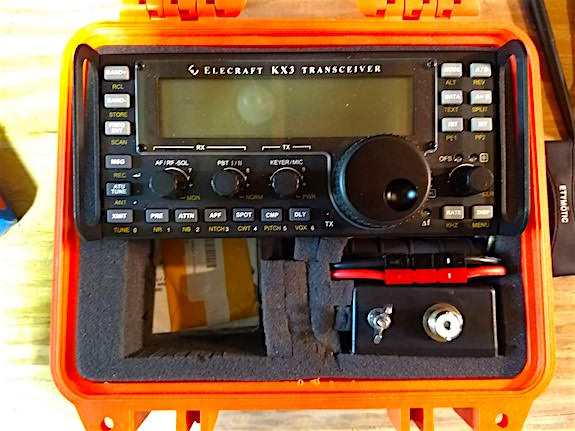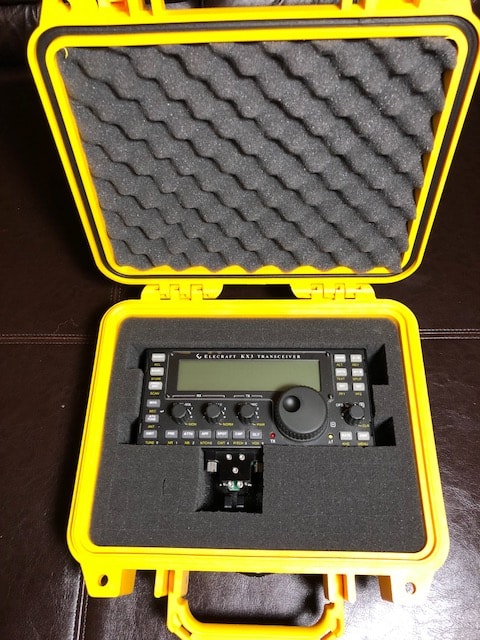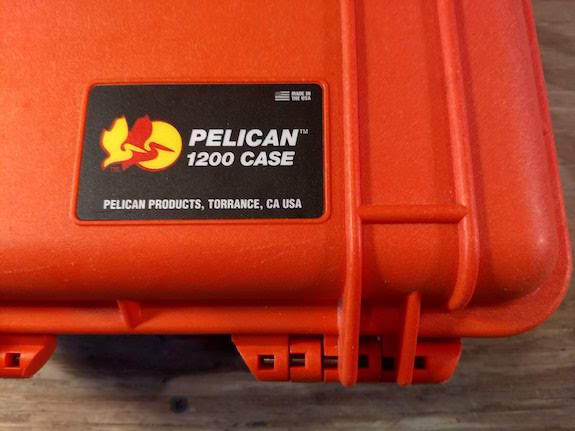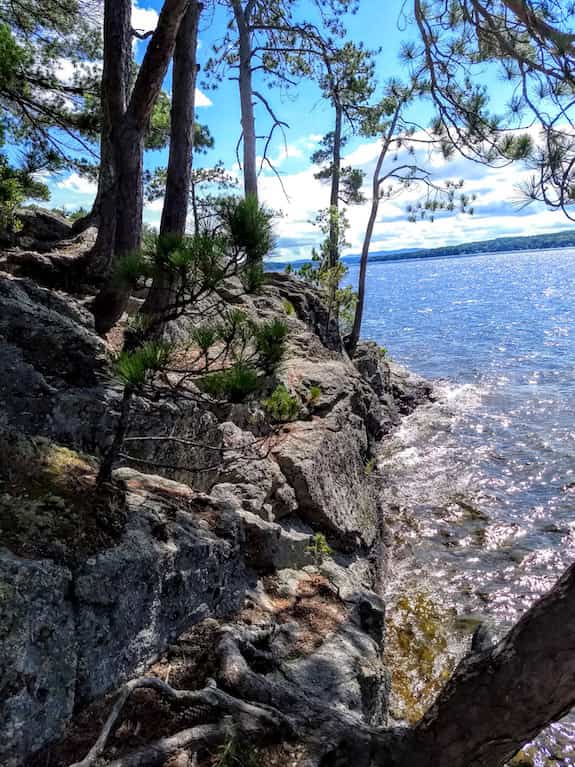
We were sitting on a small rock outcrop just above and to the left of this photo. You’d think we were along the ocean up in Downeast Maine! Copyright 2018 Tim Carter
Ahern State Park – Beauty Beyond the Beach
Yesterday my good buddy Jim Cluett, W1PID, and I decided to try to activate Ahern State Park along the eastern shore of Lake Winnisquam in central New Hampshire. I’d been there at least three other times, but it was a first for Jim even though this magical place is less than six miles from his house as the eagle flies.
The two previous days were blistering hot with temperatures above 90 F and a dewpoint kissing up against 70 F. That translates to sticky and steamy. Overnight a cool front was bulldozing in a lobe of cooler dry air so it was a perfect day to get out to do some outdoor radio.
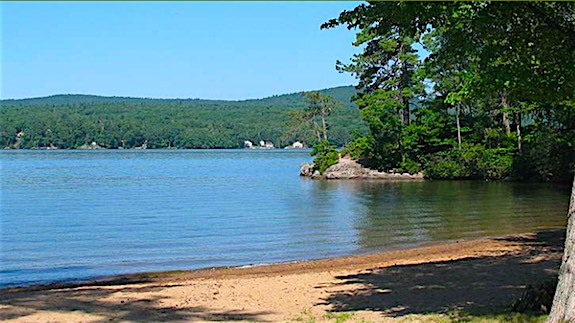
This is the beach that draws people to Ahern State Park. It’s in a nice small sheltered cove. Jim and I set up on that rocky point just across the water in the photo. It was only a 100-yard walk from where we parked. Copyright 2018 State of NH
Ahern State Park is perhaps one of the best-kept secrets in central New Hampshire. You enter the park off a driveway that leads to the old state prison and reform school. Thousands of people, I’m sure, drive by and fail to see the old brown state park sign that’s about 200 feet off State Route 106.
As you make the turn into the park, you start to bump across a dusty well-worn gravel road that seems to lead to nowhere. For the most part, Ahern is a nothing park. It’s undeveloped in the sense that the only improvement is the gravel road. The reward for absorbing the pothole punishment is a sandy beach in a sheltered cove that soaks up the warm afternoon sun.
Once you exit your car in the turnaround circle at the beach, you’ll discover there are no picnic tables, no shelter, no nothing other than a dramatic view across, up and down Lake Winnisquam. This crystal-clear body of water is the third largest lake fully within the boundaries of the great state of New Hampshire. It boasts 7.2 square miles of surface area.
The Jaw-Dropping View at Ahern State Park
“Let’s go set up at that rocky point over there,” Jim suggested after gazing at the beach and the stunning view across the water. “There’s surely a trail leading to it.”
Jim loves the outdoors and I doubt I’ll ever get him hooked on Parks on the Air (POTA) activations. Just five days earlier we had activated Fay State Forest here in New Hampshire using my call sign. He just enjoys being outdoors and if he can collect a few Qs, or contacts, as we call them, it’s all the better.
I must say Jim makes a great teammate as his radio skills are far beyond mine. He’s been a radio operator for 50+ more years than me. It was just six years ago I got serious about the hobby.
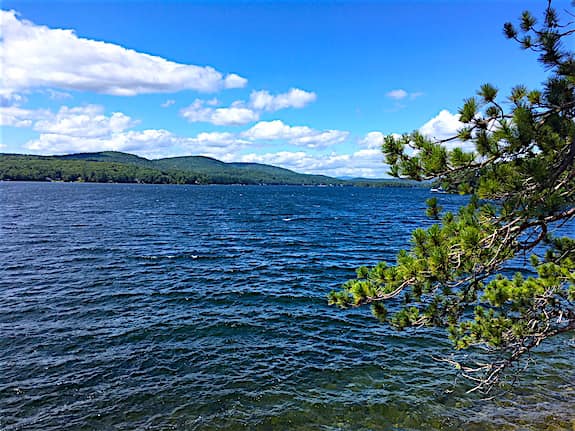
Within two minutes this is the view Jim and I saw after we walked from the beach to the rocky point. This is looking northwest right at my house just two miles diagonally across Lake Winnisquam. Ladd Mountain is that center bump across the lake. Copyright 2018 Tim Carter
Sure enough, there was a small trail just behind the beach. There were no signs telling you anything, you just had to be brave and believe.
As we walked up a slight grade next to a rotting pine tree, I could tell the view was going to be spectacular. I could see three miles down the lake and another three up the lake. Just across from us was the fabled Steele Hill and Ladd Mountain that’s not much more than a hill rising up behind my home.
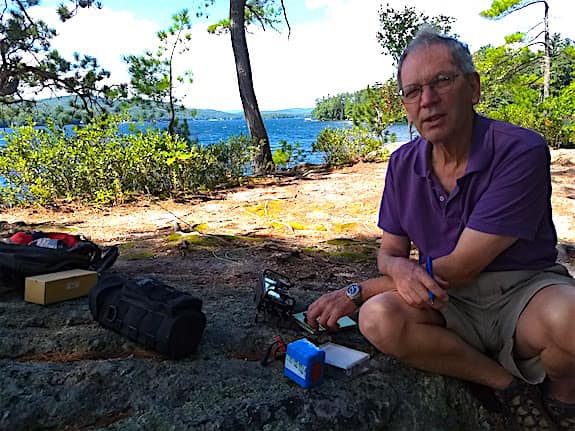
Jim’s in the zone. He’s outdoors, he’s got a radio on and it’s spectacular weather. I’m looking northwest in this photo. The panoramic view from this rocky spot was one of the best views we’ve ever had on one of our outings. Copyright 2018 Tim Carter
“Watch out for the dog doo,” Jim announced as I was soaking up the stunning view. The cool front had picked up speed and the wind was whipping up whitecaps on the lake. Some previous visitor must have had a large dog and it relieved itself right where we decided to set up. There was lots of doo to deal with.
“These two trees are just far enough apart that we can set up the 44-foot dipole,” Jim exclaimed. We used all my equipment including the dipole I modeled after one that Jim has. You can make one using thin 26-gauge twisted-pair wire. It connects to my Elecraft KX3 with a standard banana plug. The internal tuner in the KX3 has no trouble at all delivering a satisfactory SWR.
The flat dipole was about 40 feet above the water and the axis of the wire was roughly on a north-south line. This means the signal should radiate pretty well to the east and west.
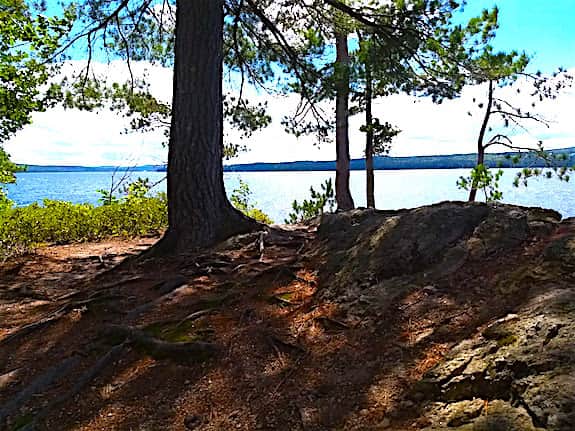
This is the rocky point just north of the beach at Ahern State Park. It’s in the shade and bring a cushion if you intend to have a picnic lunch here. Without the cushion, you’ll have a sore derrière, for sure. Copyright 2018 Tim Carter
40 Meters Was The Place to Be
As soon as we powered up the radio, I went to 20 meters. It was quiet and there was not much activity. I did hear one faint signal and Jim was able to copy Norm Jackson, K1NAJ, on a ground wave as he’s a fellow NH operator. My guess is Norm was probably just ten miles, or less, from us.
Jim was sitting on a rounded piece of the Meredith Porphyritic Granite in a trance looking out across the water. I could tell he was really enjoying this magical place so close to his home.
“Switch to 40 meters and see what’s happening,” Jim suggested. I often wonder if he’s not a soothsayer as that band had lots of strong signals.
Soon we started to make contacts, one of them a park-to-park contact with KD8DEU.
Here’s who we captured in my logbook:
CALL SIGN TIME FREQUENCY SIGNAL REPORT
| K1NAJ | 1715 UTC | 14.056 | 559 |
| AB8EL | 1724 UTC | 7.059 | 559 |
| KD8DEU | 1730 UTC | 7.036 | 559 (P2P) |
| VE3ZN | 1735 UTC | 7.036 | 559 |
| WB3GCK | 1744 UTC | 7.029 | 449 |
Five Contacts Short – But Well Worth It
You need ten contacts within 24 hours on the same day to activate the park. We came up five short because the cranky sun is asleep. We’re at the bottom of solar activity in the eleven-year cycle and this can make low-powered outdoor radio quite a challenge.
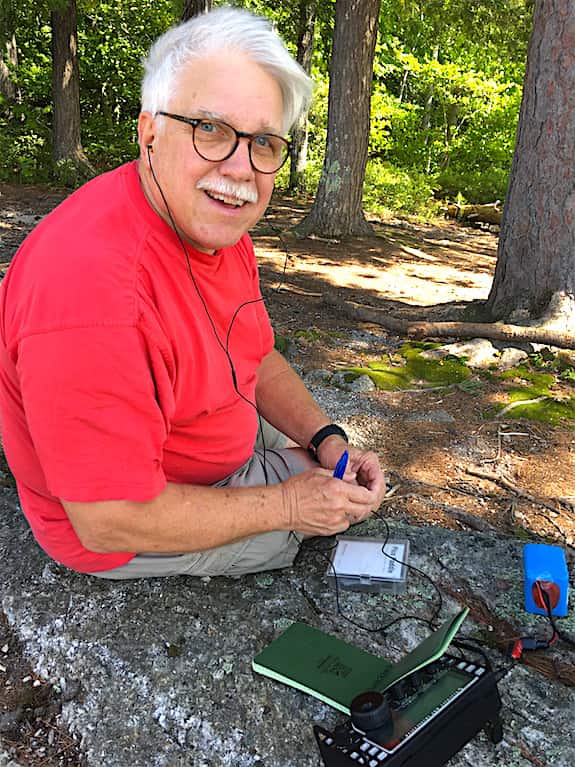
The wind was really howling as Jim shot this photo. You can see it flipped up my log book cover onto the Elecraft KX3. My hair is quite unruly too. Believe me, you want to bring a cushion as the Meredith Porphyritic Granite pokes your bones! Copyright 2018 Jim Cluett
I had a great time but the wind made it hard for me to hear some of the stations. I’ve got some occupational hearing loss that I sometimes struggle with. That’s why it’s a great idea to have a teammate like Jim along who’s hearing is so much better than mine.
I guarantee you we’ll be back with cushions next time on a brilliant autumn day. I’m hoping to get the required ten contacts so we get credit as well as the wonderful POTA operators who try to contact us.

